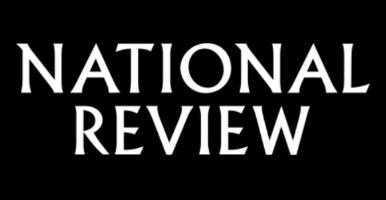This piece originally appeared in National Review on February 27, 2021.
‘We the people. Those words changed everything. Power rested in the people, not the government. Freedom to think, to speak, to act, to criticize your government, all protected.” Great rhetoric, worthy of praise. Yet these words from candidate Joe Biden introduced President Joe Biden’s agenda to curtail the very freedoms those words extol.
Biden’s “Plan to Guarantee Government Works for the People” acknowledges that the First Amendment prevents his ultimate goal to “entirely eliminate private dollars from our federal elections.” That’s why he’ll push for a constitutional amendment to get the people’s rights out of the government’s way.
During the 2020 election, more Americans made campaign donations than ever before, and millions of Americans made their voices heard through independent groups that represented them. The president wants to ban such civic engagement, which is protected by the First Amendment.
Biden’s plan would bar so-called outside spending — speech from groups not controlled by candidates or parties. That term tells you all you need to know about the mindset behind the plan. Since when are the people outside our democracy?
Democrats in Congress have introduced legislation to get us halfway there. H.R. 1 (S. 1 in the Senate), takes aim at your “outside” voice, which Biden wants to silence. The bill also demonstrates how efforts to silence independent groups won’t stop at speech urging fellow Americans to vote for or against candidates. H.R. 1’s provisions for “Stopping Super PAC–Candidate Coordination” reach far beyond super PACs and would capture speech that has nothing to do with elections. Any organization that discusses policy issues could trigger the sweeping “coordination” standards. Communications about legislation made routinely by advocacy groups today would be illegal under H.R. 1.
Say a civil-rights group publishes an analysis highlighting areas of a criminal-justice reform bill that could be improved. The sponsor of the legislation reaches out to the group with questions. In the course of conversation, the senator mentions that she plans to highlight the bill at an upcoming campaign event. Just like that, this policy discussion has triggered a speech ban. The group has engaged in “communication . . . regarding the candidate’s or committee’s campaign advertising, message, strategy, policy, polling, allocation of resources, fundraising, or other campaign activities.”
As a result, the group is barred from spending a single penny on speech that “promotes or supports” the senator, “regardless of whether the communication expressly advocates the election . . . of a candidate.” This vague language applies to communications made at any time, not just close to an election. Simply urging lawmakers to “support Senator Jane Doe’s Sentencing Reform Act” could be banned under H.R. 1. If the bill is pending 120 days before a general election with the senator on the ballot, the ban would apply to “a communication which refers to” the senator, even if it is not deemed to promote or support the lawmaker.
Like Biden’s plan, the text of H.R. 1 states that ultimately “the Constitution should be amended” to rein in First Amendment freedoms. Separately, House Democrats recently reintroduced the “Democracy for All Amendment,” which would grant Congress the unlimited power to “set reasonable limits on the raising and spending of money by candidates and others to influence elections.” If the Biden plan is any indication of what Democrats consider “reasonable limits,” then one can assume that entirely eliminating campaign donations and independent speech is on the table. And again, don’t expect limits, or bans, to stop at electoral advocacy.
If H.R. 1 is passed, Americans will surely defend their rights in court. The bill’s supporters in Congress likely expect some provisions to be struck down under the First Amendment, as happened to both the Federal Election Campaign Act of 1971 and the Bipartisan Campaign Reform Act of 2002, better known as McCain-Feingold. They don’t care. They’ll have another Citizens United to hype, a new “threat to democracy” du jour. The substance won’t have to live up to the rhetoric — after all, Citizens United, a case decided in 2010, struck down a federal law that resulted in a ban on a movie about then-Democratic primary candidate Hillary Clinton. The Supreme Court’s decision has been a boon to free political speech, while none of the doomsday predictions have come to pass. And remember, congressional Democrats have long supported a constitutional amendment limiting First Amendment rights. Biden himself co-sponsored such an amendment in 1997. The rallying cry to “overturn Citizens United” is little more than a marketing tactic.
Too many elected officials think the people’s right to be heard in a democracy should begin and end on the day you vote. Perhaps that’s why they’re always sure to let you know they intend to make voting “easier, not harder.” It’s as if to say, “Here’s your democracy, now shut up.”














